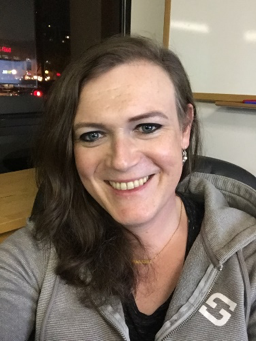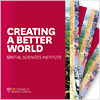Not long after she began her studies in the master’s program in Geography at San Diego State University, Shea Ellen Gilliam finally embraced her identity as a transgender woman. As she began her medical transition, she concurrently structured her master’s thesis to explore integration of transgender athletes into the cis-centric sporting spaces of women’s roller derby. Utilizing a feminist epistemological frame, Gilliam conducted a reflexive, autoethnographic study as part of her thesis whereby she joined a Los Angeles league, became a skating member of Women’s Flat Track Derby Association (WFTDA), and chronicled her experiences over the first 13 months of her medical transition.
In her article “A Cautionary Tale: Trauma, Ethics and Mentorship in Research in the USA” just published in Gender, Place & Culture: A Journal of Feminist Geography, Gilliam shares some of physical, emotional, and psychological trauma she experienced during her time as a skater in the WFTDA. In the article, she discusses the hardships of making her own medical and social transition part of her thesis project. Her co-author Kate Swanson also shares what she learned as Gilliam’s thesis advisor, particularly as to the importance of mentoring graduate students through the emotional toll of graduate studies. “It is our sincere hope this article can help to raise awareness of both the power of and risks inherent in autoethnographic research, particularly when members of underrepresented groups expose themselves to potentially traumatic situations for the purpose of advancing academic knowledge,” Gilliam explained.
As a result of the challenges she faced as a master’s student, Gilliam decided to continue to utilize feminist research methodologies over the course of doctoral research. “Since my master's research was theoretically situated at the intersection of space, social theory and health it seemed apropos to apply to the USC’s Population, Place and Health Ph.D. program. I plan to expand on what I've learned as a feminist researcher and find new ways to ethically and reflexively engage topics in the spatial health sciences,” Gilliam concluded.
For more information about the Population, Health and Place Ph.D. program, visit https://spatial.usc.edu/ph-d-in-population/.





